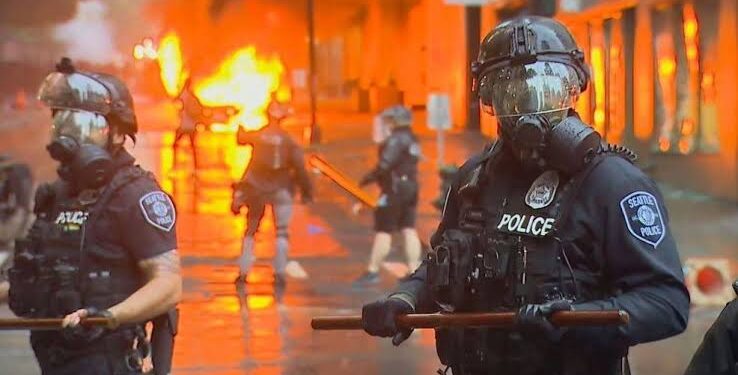The City of Seattle has formally requested federal court approval to end the longstanding consent decree that has placed the Seattle Police Department (SPD) under federal oversight since 2012.
Mayor Bruce Harrell announced Tuesday that the City Attorney has submitted a motion to U.S. District Judge James L. Robart, who has overseen the case, seeking full termination of the agreement. The consent decree was initiated following a U.S. Department of Justice investigation during the Obama administration, which found a troubling pattern of excessive force by SPD officers, including findings that nearly 20% of serious use-of-force incidents were unconstitutional.
Since then, the department has undergone sweeping reforms, including overhauls to policies, training, and accountability systems. City officials now assert that SPD has not only met but exceeded the requirements laid out in the decree.
“Over a decade ago, I supported the federal consent decree because we knew our police department could—and needed to—do better,” said Harrell in a press release. “Today, we are proud of the significant progress made.”
In an interview with KOMO News, Harrell pointed to improvements in SPD’s crisis intervention efforts, such as the CARE team, and revised crowd management policies. He also highlighted data showing that only 1% of the department’s 8,000 public interactions in the past year involved any use of force.
The city’s latest reforms include legislation passed earlier this year prohibiting the use of less-lethal tools in crowd control unless there is an imminent threat of harm or significant property damage. These updates have been integrated into SPD’s operational policies and reflect the department’s emphasis on de-escalation and accountability.
SPD Chief Shon Barnes, who assumed leadership earlier this year, said the department’s completion of the consent decree requirements is a testament to the dedication of officers and staff. “Successfully completing all the requirements highlights the resilience of the entire department,” Barnes said.
City Attorney Ann Davison echoed the sentiment. “This motion reflects the years of collaborative work to ensure constitutional policing in our city,” she said.
Still, some community voices remain cautious. Activist Howard Gale acknowledged improvements but urged continued focus on officer-involved shootings and crisis response. He advocates for a more community-centered model of oversight. “We need one body that can oversee complaints, investigations, and disciplinary actions,” Gale said.
Public Safety Committee Chair Bob Kettle emphasized the importance of maintaining momentum. “Our work is far from over,” he stated. “But this is an opportunity to build further trust between SPD and the people it serves.”
Harrell also cited growing interest in joining the force, noting the department is receiving over 10 applications daily for officer positions.
If Judge Robart approves the city’s request, the Office of Inspector General is expected to take over local accountability functions, continuing the work of monitoring and guiding best practices within SPD.
Seattle now awaits the federal court’s decision, which will determine whether the city can officially move beyond the federal consent decree and into a new phase of locally driven police oversight.







